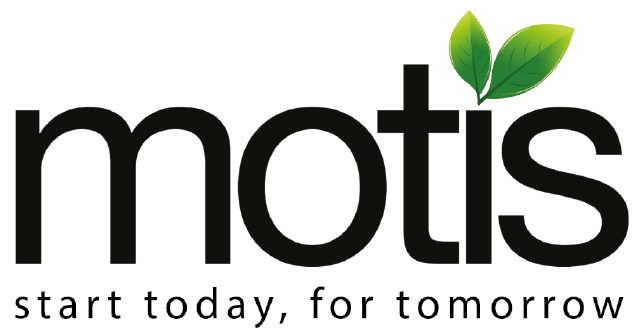Born in 1959. Hämeenlinna. Master of Science in Economics and Business Administration, Helsinki School of Economics (1986). Instructor and lecturer of negotiation theories in Helsinki School of Economics and the University of Joensuu. Hämeenlinna town council (1981-1992). Member of the Executive, Regional Council of Häme (1991-1992). Member of the Finnish Parliament 1983-2003. Elector for the Finnish President 1988. Minister of Environment 1991-1995. Vice-Chairman of Kokoomus 1989-1995. Chairman, programme committee, Kokoomus (1989-1995). Chairman, Working Party on an Ecologically and Socially Sound Market Economy, EDU (1989-1992). Chairman, Finnish UN Association (1996-2007). Chairman, World Federation of United Nations Associations (WFUNA) (2000-2005). Member of the board, IDEA International Institute for Democracy (2006-). Member of the board, Kone Oy (27.2.2006-). MEP since 2008.
Event Overview
The European Sustainable Construction Conference will unite policymakers, industry leaders, academics, and civil society to address the construction sector’s role in driving sustainability and competitiveness. Contributing 9% of the EU’s GDP and employing 18 million people, the sector also generates over 35% of the EU’s waste and 36% of energy-related greenhouse gas emissions.
Key discussions will focus on aligning with EU policies like the Circular Economy Action Plan, Construction Transition Pathway, and New European Bauhaus Initiative. Topics include reducing waste, advancing material reuse, lifecycle design, and managing construction waste to meet circular economy goals. Digitalisation through Building Information Modelling (BIM) and AI will highlight efficiency and sustainability improvements, while the New European Bauhaus ethos will explore blending sustainability with cultural and modern design.
The conference will also address resilient supply chains, workforce upskilling, and inclusion to support green and digital transitions. Participants will collaborate on actionable strategies and policies to position the construction sector as a leader in sustainability, resilience, and long-term European competitiveness.



 MEP Sara Matthieu, Group of the Greens, Member of ITRE Committee and ENVI Rapporteur of the Construction Products Regulation, European Parliament
MEP Sara Matthieu, Group of the Greens, Member of ITRE Committee and ENVI Rapporteur of the Construction Products Regulation, European Parliament 

 MEP Andrea Wechsler, Member of the Industry, Research and Energy Committee, European Parliament
MEP Andrea Wechsler, Member of the Industry, Research and Energy Committee, European Parliament 
 MEP Marcos Ros Sempere, Group S&D, European Parliament
MEP Marcos Ros Sempere, Group S&D, European Parliament 
 MEP Radan Kanev, Group EPP, Member of the ENVI Committee, European Parliament
MEP Radan Kanev, Group EPP, Member of the ENVI Committee, European Parliament 
 Anders Danielsson, President and Chief Executive Officer, Skanska
Anders Danielsson, President and Chief Executive Officer, Skanska 





 Katharina Knapton-Vierlich, Head of Unit –Construction, DG GROW, European Commission
Katharina Knapton-Vierlich, Head of Unit –Construction, DG GROW, European Commission 



 Fleming Voetmann, Vice President for External Relations and Sustainability, VELUX
Fleming Voetmann, Vice President for External Relations and Sustainability, VELUX 
 Allison Scott, Director ,Sustainability Growth and Engagement, Autodesk
Allison Scott, Director ,Sustainability Growth and Engagement, Autodesk 
 Ditte Lysgaard Vind, Chief Innovation and Science Officer, BloxHub
Ditte Lysgaard Vind, Chief Innovation and Science Officer, BloxHub 

 Pascal Eveillard, Director for Sustainable Business Development, Saint-Gobain
Pascal Eveillard, Director for Sustainable Business Development, Saint-Gobain 



 Fiona Félix, Public Affairs Lead, Hansgrohe Group
Fiona Félix, Public Affairs Lead, Hansgrohe Group 

 Sofia Lettenbichler, Managing Director, E.V.V.E
Sofia Lettenbichler, Managing Director, E.V.V.E 


 Laura Pallares, Head of Europe, World Green Building Council
Laura Pallares, Head of Europe, World Green Building Council 


 Sorcha Edwards, Secretary General, Housing Europe
Sorcha Edwards, Secretary General, Housing Europe 





![BentleyLOGO_BLK_complete[32]](https://techforclimateaction.com/wp-content/uploads/2023/08/BentleyLOGO_BLK_complete32.png)
![BLOXHUB_cmyk grøn]](https://techforclimateaction.com/wp-content/uploads/2025/05/BLOXHUB_cmyk-gron.png)









![PRINT READY_THEPARLIAMENT-LOGO_2022_FULL COLOUR_RGB[49]](https://techforclimateaction.com/wp-content/uploads/2024/09/PRINT-READY_THEPARLIAMENT-LOGO_2022_FULL-COLOUR_RGB49.png)






